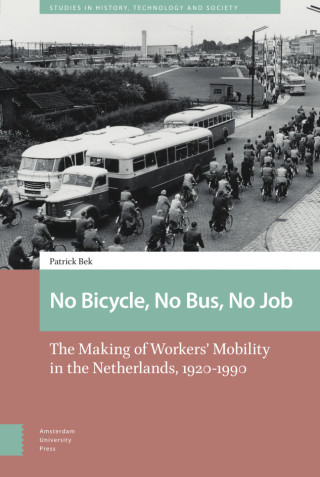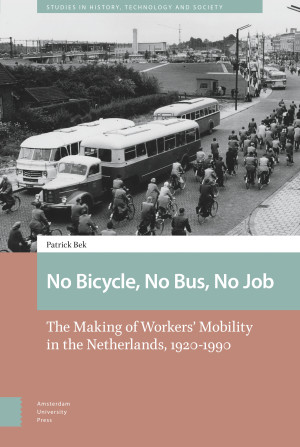"In this carefully researched volume, Patrick Bek examines the links between workers’ mobility, transportation technologies, and societal change. In particular, he focuses on the ways in which mobility deprivation was produced through strategies enacted by the state and employers, and the measures that workers developed to facilitate their mobility and access to employment"
-- Colin Pooley, Technology and Culture, Vol, 64, July 2023
"No Bicycle, No Bus, No Job is a uniquely valuable contribution to historical mobility studies ... Consistent with the best work in this tradition, Bek is adept at reincluding overlooked participants in the historical struggles whose legacies we have inherited. Through archival research drawn from a complementary array of diverse cases, he reconstructs everyday struggles and the settings in which they were waged. But Bek is also an innovator in this field. To mobility studies’ stress on urban mobility, he adds the rural worker who commutes to the urban industrial plant. To the field’s ample attention to public versus private transport, he adds corporate transport, a variety that is both public and private in character. And Bek reminds labor historians that the journeys to and from work are part of the working day too, with similar struggles."
-- Peter Norton, Journal for Transport History
"No Bicycle, No Bus, No Job broadens the understanding of mobility poverty by approaching it through the history of commuting. ... the strength of the book is twofold: interweaving transport technology with economic changes to explain commuting as labor practice as well as giving employers, workers, and the state agency in shaping and reshaping commuter flows."
-- Ingrid Schepers, TSEG - The Low Countries Journal of Social and Economic History
''Through the twentieth century, the displacement of the workplace from the home meant that waged work became inaccessible without the capacity to travel. Yet without workers’ travel, employers lack a labour force. Who then should be responsible for the costs of that travel and the provision of the mechanisms of travel? How should responsibilities for provision be shared, and what forms have the various compromises reached, taken? These are the central conundrums that shape the five specific case studies spanning seventy years that Patrick Bek weaves expertly together to provide a detailed picture of changing patterns of commuting journey, by mode and by geography in the Netherlands. … The volume forms another excellent instalment in the series of works originating from the Eindhoven history group.''
-Peter Cox, H-Soz-Kult
''Bek did a commendable job shedding light on an underexposed aspect of working life in the twentieth century. A thorough examination of new, less accessible material, with dispersed information as bits and pieces in the sources, made this possible. The study concentrates on a hidden, very implicit interaction and therefore unravels how deep systemic structures influence labour power relations. … It gives rise to more studies of other historical periods and other places in the world.''
-Ivo Zandhuis, BMGN – Low Countries Historical Review

